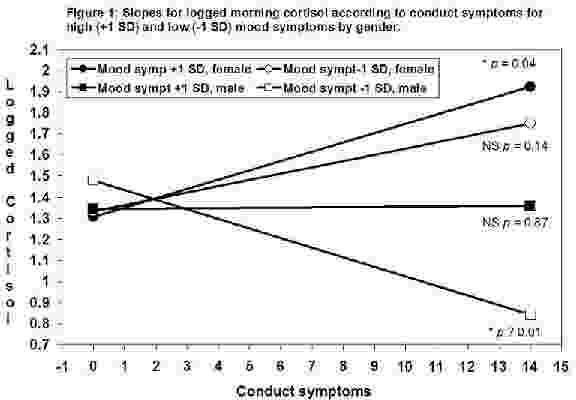No CrossRef data available.
Article contents
P02-43 - Associations Between DSM-IV Diagnosis, Psychiatric Symptoms and Morning Cortisol Levels in a Community Sample of Adolescents
Published online by Cambridge University Press: 17 April 2020
Abstract
The hypothalamic-pituitary-adrenocortical axis (HPA-axis) is involved in the regulation of the stress response. Dysfunction of this system is implicated in a variety of psychiatric and emotional disorders.
To explore the association between HPA-axis functioning, as measured by morning cortisol, and common psychiatric disorders and symptoms among a community sample of adolescents.
Data from a cross-sectional school-based survey of 501 school pupils, aged 15, were used to establish the strength of association between morning salivary cortisol and both diagnosis of psychiatric disorders and number of psychiatric symptoms. Analysis, conducted separately by gender, used multiple regression, adjusting for relevant confounders.
With one exception (a positive association between conduct disorder symptoms and cortisol among females) there was no association between cortisol and psychiatric diagnosis or symptoms. However, there was a significant two-way interaction between gender and conduct symptoms, with females showing a positive and males a negative association between cortisol and conduct problems. A three-way interaction showed that while the association between cortisol and conduct symptoms was negative among males with few mood disorder symptoms, among females with many mood symptoms it was positive.

Except in relation to conduct symptoms, dysregulation of morning cortisol levels seems unrelated to any psychiatric disorder or symptoms. However, the relationship between cortisol and conduct symptoms is moderated by both gender and mood symptoms. Our findings suggest research should concentrate on the moderated associations between cortisol, gender, and psychiatric symptoms.
- Type
- Epidemiology
- Information
- Copyright
- Copyright © European Psychiatric Association 2010



Comments
No Comments have been published for this article.